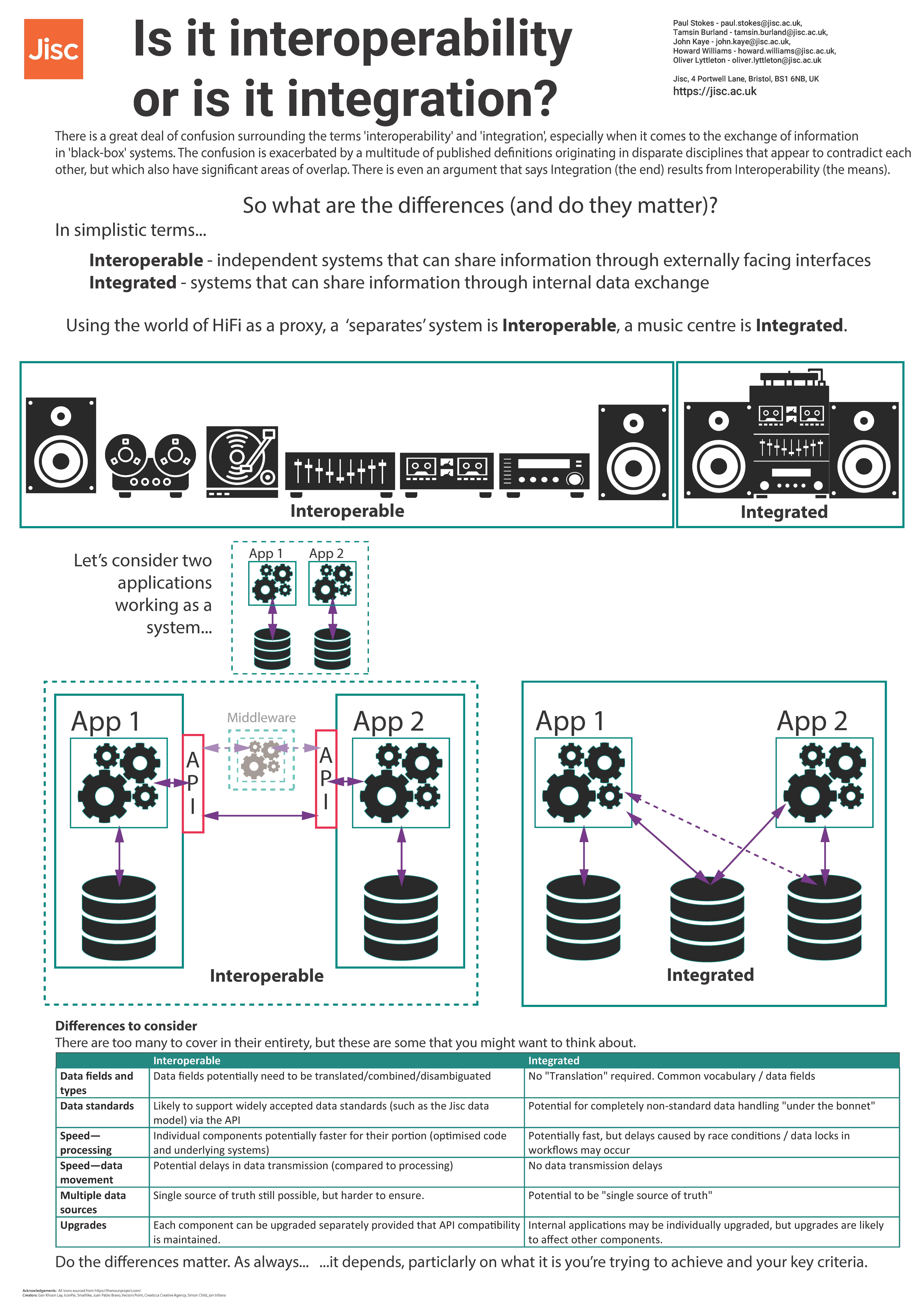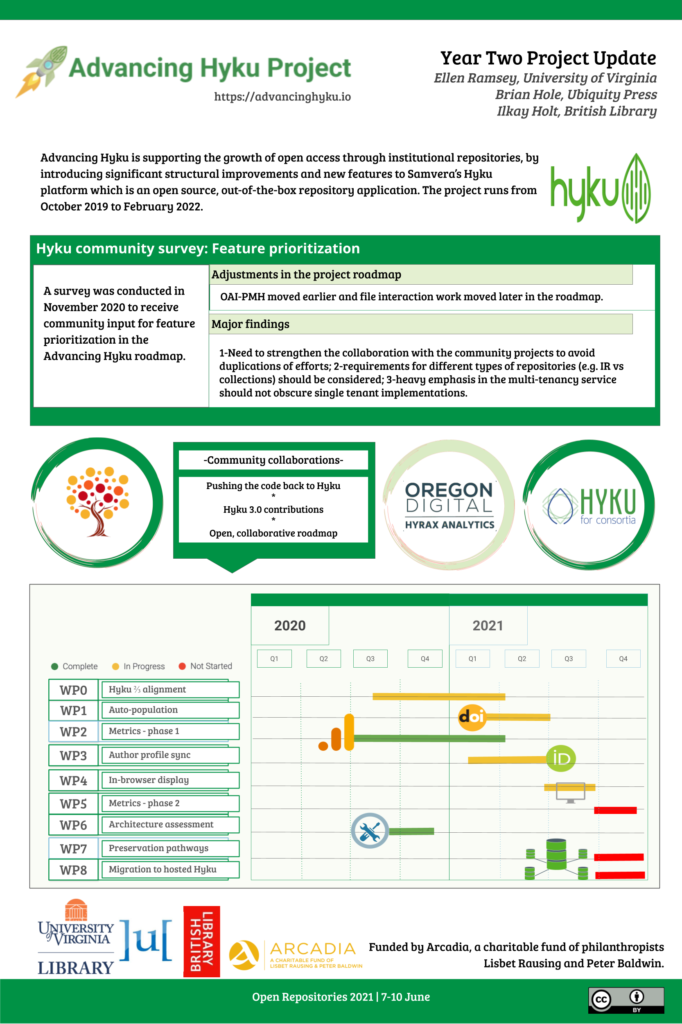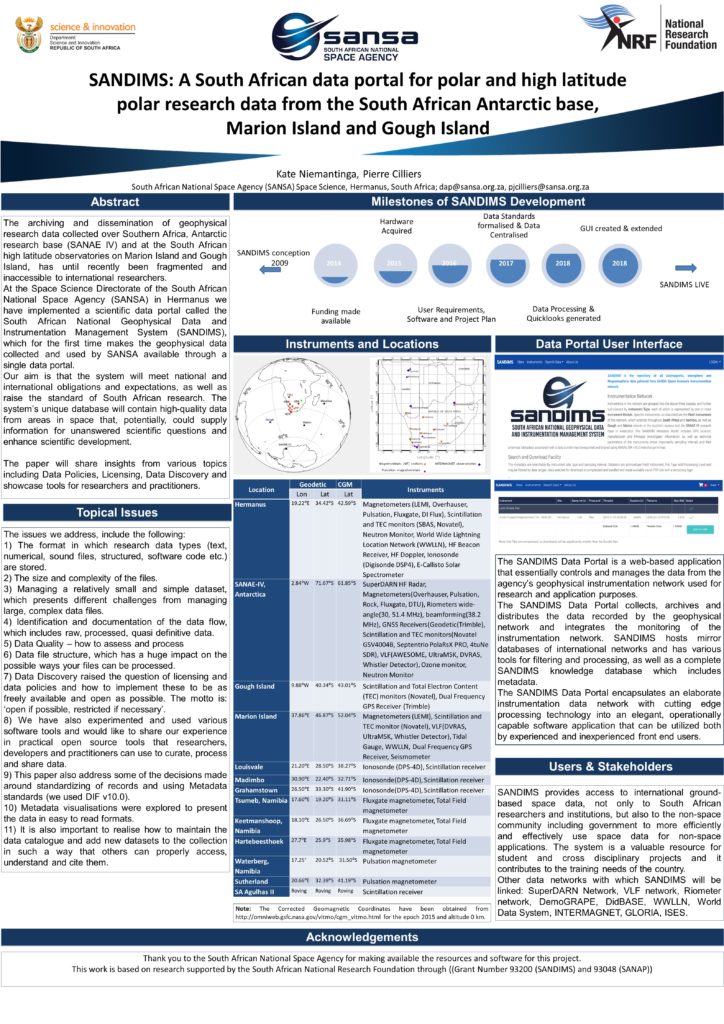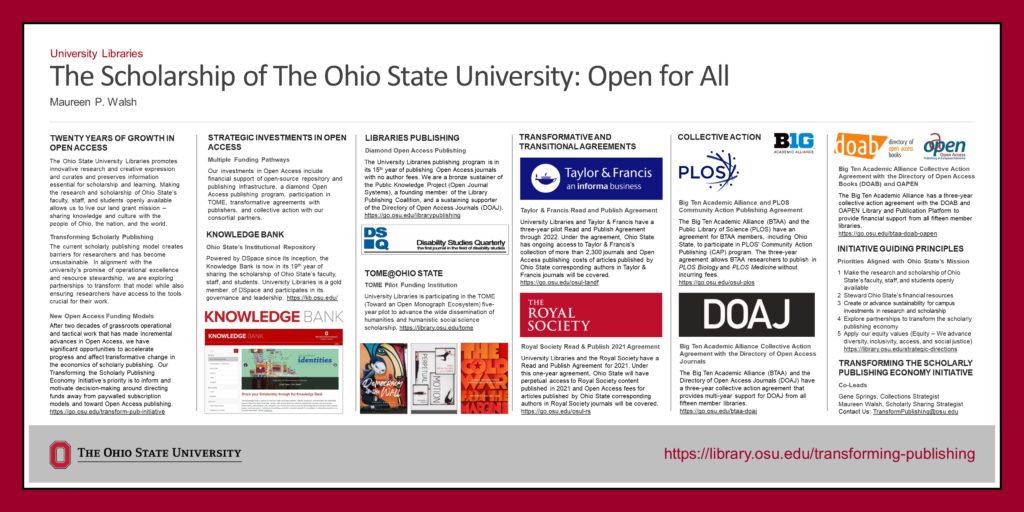And that’s a wrap for Open Repositories 2021! It has been an excellent four days of workshops, keynotes, presentations, panels, posters, and conversations. A big, big thank you to:
-
-
-
- All of our attendees. Open Repositories is first and foremost about the community, and you all came through with great questions and comments.
- Our 200 some presenters. The content you presented was thought provoking, useful, and engaging. We especially want to thank those of you who presented in English when it is not your native language.
- Our keynote speakers, Jeremy Farrar, Stephanie Russo Carroll, and Bianca Amaro for such challenging and inspiring keynotes. Keynote speakers so often set the tone for a conference, and these speakers were no exception.
- Our sponsors. Even with a virtual conference, there are expenses and we really appreciate the support of our sponsors – many of whom have been long time supporters of Open Repositories.
- Organizations providing technical and logistical support in terms of Zoom access, website support, and fiscal support. We want to recognize EIFL, WACREN, CLIR, the Digital Repository of Ireland, and the University of Arizona Libraries for their support.
- Our reviewers who helped guide what was accepted into the program and what wasn’t. We appreciate the time and energy you put into reviewing proposals!
- Our program chairs and program committee who put in an incredible amount of work on managing the program from the call for proposals to managing the review process to putting together a compelling program.
- Our host committee who managed logistics for registration and scheduling, zoom set up, live streaming, sponsorship, social media, and so much more.
-
-
Nearly all of the presentations, keynotes, and workshops are now available in our YouTube channel and also deposited into the Open Repositories Zenodo community.
Finally, we are very excited to be planning to have our 2022 conference in person in Denver, Colorado, USA. The conference will be hosted by the Colorado Alliance of Research Libraries. See you all in 2022!




